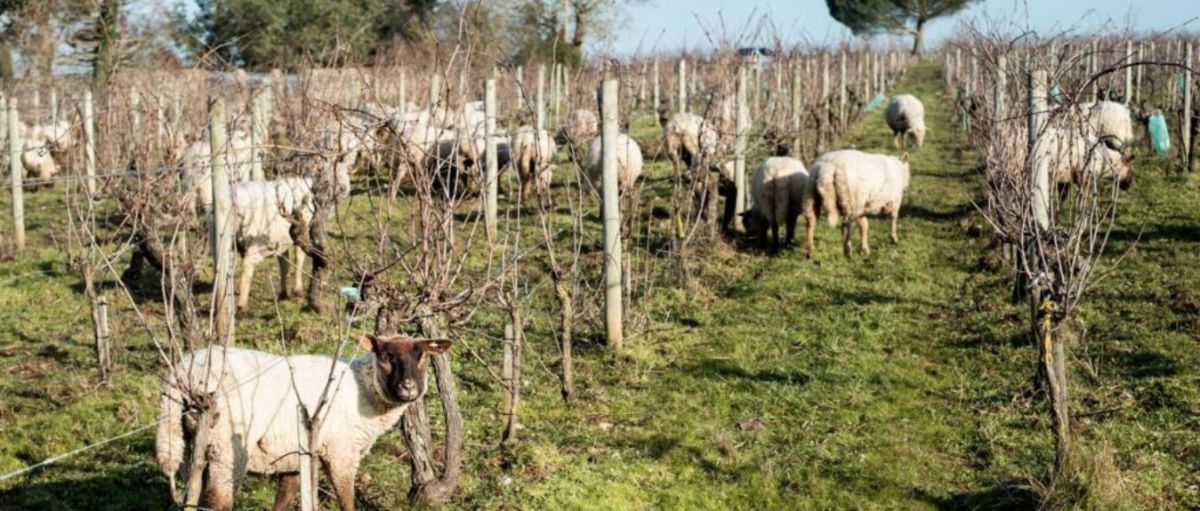Early Bird
Offer Ends
April 30, 2024
Judging
Date
July 22, 2024
Winners
Announcement
August 8, 2024

Regenerative viticulture has emerged over the past few years as a powerful and transformative trend within the wine industry. By harnessing the carbon cycle and prioritizing soil regeneration, biodiversity, and climate change mitigation, regenerative viticulture presents a sustainable and holistic solution. The recent Regenerative Viticulture Symposium held in Falset, Catalunya shed light on this promising movement. Spearheaded by the renowned Torres Family winery and supported by numerous industry members, regenerative viticulture is poised to become a driving force in wine production over the next decade.
Regenerative viticulture revolves around transforming agricultural practices to restore the health and vitality of vineyard ecosystems. It challenges conventional methods that rely on expensive artificial inputs and chemical interventions. By shifting the focus to soil regeneration, erosion prevention, biodiversity promotion, and climate change adaptation, regenerative viticulture aims to create self-sustaining environments that support the growth of high-quality grapes while preserving the planet. In practice, regenerative viticulture differs substantially from biodynamic and organic approaches.
The recent Regenerative Viticulture Symposium, organized by the Torres Family, brought together experts and industry professionals to explore regenerative viticulture’s principles and applications. The symposium featured engaging talks from knowledgeable speakers who emphasized the importance of holistic land management and ecosystem balance. Dr Elaine Ingham, founder of the Soil Food Web School, highlighted the vital role of soil health in agriculture. Her insights underscored the need to restore soil balance to reduce farming costs and enhance overall sustainability.
French biologists Lydia and Claude Bourguignon drew attention to the detrimental effects of erosion on vineyard soils and root health. They highlighted the need for soil structure and root stability, especially in the face of increasingly extreme weather conditions resulting from climate change. Regenerative viticulture addresses these concerns by promoting practices that foster soil health, such as minimizing tilling and avoiding chemical inputs. This approach encourages the growth of robust root systems and humus, which act as natural barriers against erosion and enhance the vineyard's resilience.

Regenerative viticulture, while sharing some similarities with biodynamics, presents a distinct approach to sustainable agriculture. Unlike biodynamics, which incorporates spiritual and cosmic elements into farming practices, regenerative viticulture primarily focuses on soil health and ecosystem regeneration. It seeks to restore and enhance soil biodiversity, minimize external inputs, and promote natural processes. Regenerative viticulture emphasizes the utilization of the carbon cycle to improve soil fertility, prevent erosion, and combat climate change. It recognizes the importance of creating self-sustaining ecosystems that thrive without the need for artificial interventions. In contrast, biodynamics encompasses a broader set of practices that includes celestial alignments, biodynamic preparations, and a unique farming calendar. While both regenerative viticulture and biodynamics share a commitment to sustainability, regenerative viticulture places a greater emphasis on scientific principles and practical applications to achieve long-term ecological balance in vineyard ecosystems.
The symposium participants collectively acknowledged the flaws in conventional agricultural practices and emphasized the urgent need for change. Traditional methods reliant on pesticides, herbicides, and excessive tilling have led to imbalanced ecosystems and the decline of soil health. The regenerative viticulture movement presents a compelling alternative by reestablishing harmony between agriculture and nature. It embraces the wisdom of natural systems and recognizes the remarkable ability of ecosystems to thrive when left undisturbed.
[[relatedPurchasesItems-55]]
Familia Torres, a key proponent of regenerative viticulture, has taken a strong leadership role in driving this movement forward. Alongside initiatives like the International Wineries for Climate Action, Torres has spearheaded efforts to reduce environmental impact within the wine industry. The establishment of the Regenerative Viticulture Association reflects their commitment to promoting sustainable practices and fostering collaboration among vineyards across Spain. There’s also now a Regenerative Viticulture Foundation. By organizing the symposium and supporting research, Torres has showcased the potential benefits of regenerative viticulture to a wider audience.
Regenerative viticulture is set to revolutionize the wine world over the next ten years, and the wine industry and sommeliers must take notice. With a focus on soil health, biodiversity, and climate change mitigation, this approach offers a sustainable and effective vineyard solution. The symposium provided a platform for knowledge sharing and collaboration, ensuring the widespread adoption of regenerative practices in the wine industry. Through the efforts of forward-thinking wineries like Torres, this transformative trend will shape the future of wine production.